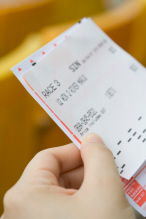Primary activity, betting shops and s. 153 of the Gambling Act
 Gerald Gouriet QC and George Mackenzie take issue with a London borough's interpretation of the outcome of judicial review proceedings relating to primary activity and a betting shop.
Gerald Gouriet QC and George Mackenzie take issue with a London borough's interpretation of the outcome of judicial review proceedings relating to primary activity and a betting shop.
The website for Newham Council has published an account of a decision made by their licensing sub-committee in which an application made by William Hill for a new betting premises licence was rejected on the ground (inter alia) that the sub-committee “was not satisfied that the primary activity at this (sic) particular premises would be traditional over the counter betting.”
In the course of the account given on the website (but not daring to show its face in the actual written decision) is the wrongful assertion that the High Court had recently “overturned part of District Judge Goldspring’s decision” in the Paddy Power appeal of June last year, in a judicial review of that decision brought by Newham. The High Court did no such thing, and it is instructive to set the record straight.
The judicial review referred to by Newham merely resulted in a Declaration (whose uncontroversial terms were agreed by all parties to the judicial review brought by the Council) which does no more than reflect section 153 of the Gambling Act 2005. The Declaration provides:
“The effect of Section 153 of the Gambling Act 2005 is to require a local Licensing Authority carrying out its functions – including considering applications for Premises Licences – to have regard to any code of practice under Section 24 and any guidance document under Section 25 issued by the Gambling Commission, including the provisions of that code and the principals contained in that guidance. In the present drafting of the code of practice and the guidance document one provision of the code and one principal contained in the guidance to which a local Licensing Authority must have regard is that of primary gambling activity”.
The first clause of the Declaration makes it clear that it was intended to reflect Section 153. It was not intended to, and did not, chart any new legal territory.
Anyone familiar with the Gambling Act, however, will see at once that the declaration is deficient, in that it twice omits the word “relevant” after the word “any” in the third line: Section 153 requires a licensing authority to have regard to any relevant code of practice under Section 24 and any relevant guidance document under Section 25. The deficiency was thought too small a quibble to be the stuff of a substantive High Court action, and could in any event be explained on a case-by-case basis should the need arise: the actual words of section 153 are there for anyone to see.
It is necessary to recognise that omission, however, in countering the erroneous suggestion that part of District Judge Goldspring’s decision was “overturned” by the High Court. Leaving aside the somewhat obvious fact, overlooked by Newham, that the judge’s comments about primary gambling activity were expressly said by him to be no part of his decision, his analysis of the law was not only correct but was neither overturned nor even commented upon by the High Court: the Declaration was by consent, and there is no judgment.
District Judge Goldspring was fully aware of section 153 and observed it faithfully. His decision (read as a whole, without cherry-picking single sentences), fully accords with the Declaration. He was taken through the Gambling Commission’s codes and guidance and had regard to them, as he was required to. He concluded, correctly, that when one looks at the actual terms of them, as well as the Gambling Commission’s mandatory conditions relating to Operating Licences, one sees that the primary gambling act requirement is expressly worded so as to apply to existing licensees and their conduct of licensed premises. The judge would appear to have concluded that the passages in the codes and guidance were not, therefore, “relevant” to applications for new licences. If that is what was meant by the judge’s obiter comments, he was in our respectful opinion absolutely right – and he was certainly not overruled by the High Court.
Gerald Gouriet QC and George Mackenzie are barristers at Francis Taylor Building. They acted for Power Leisure Bookmakers Limited in the Newham judicial review.